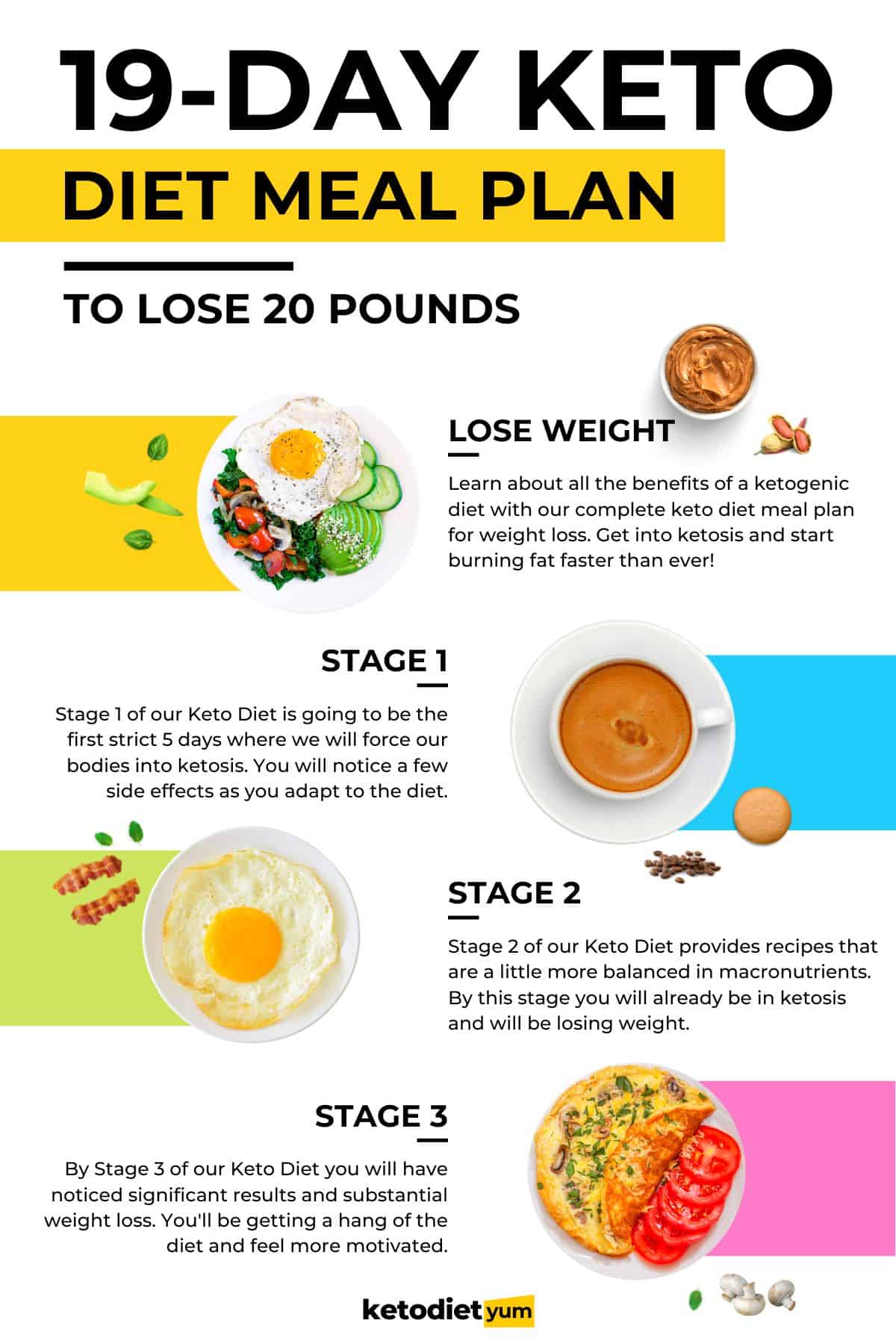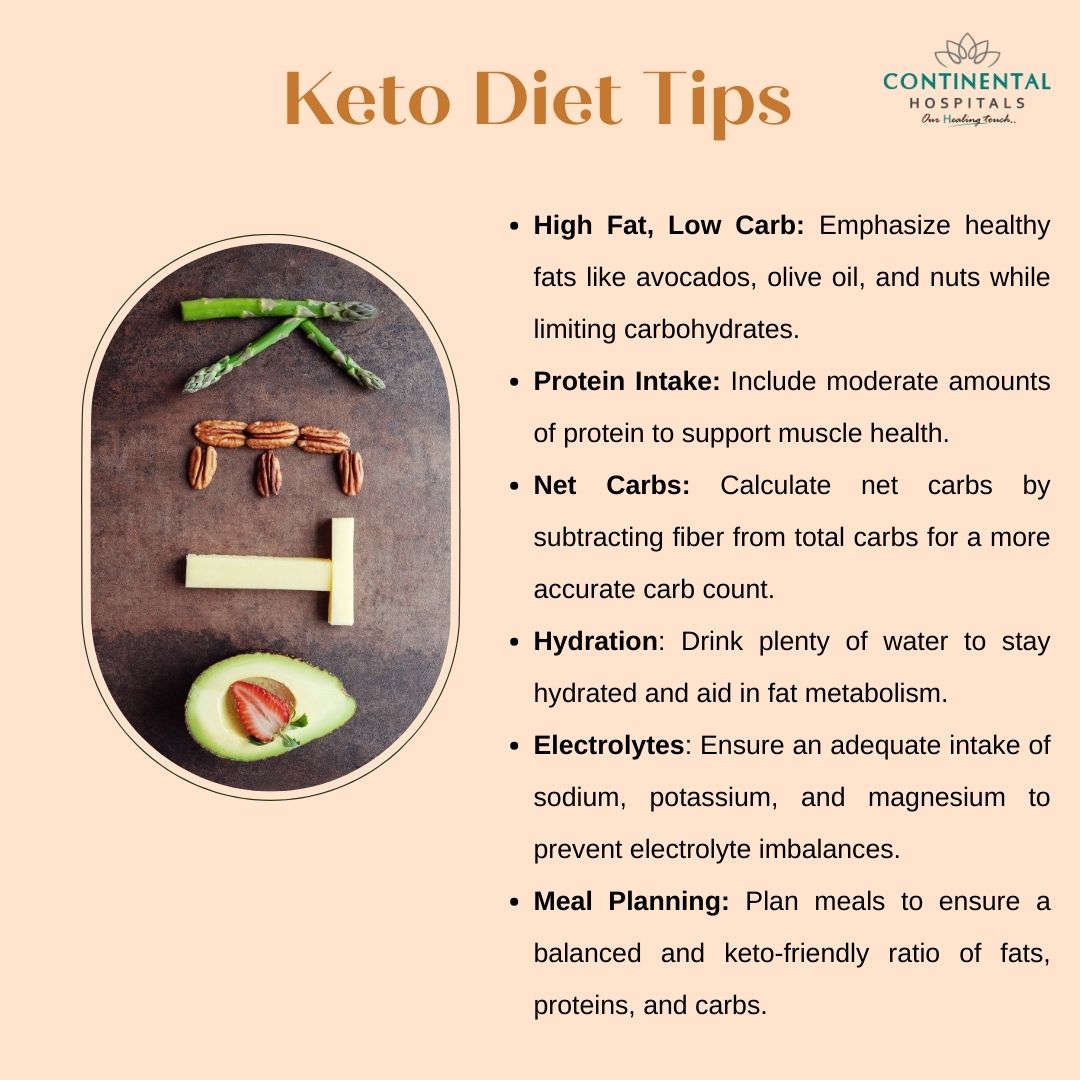Are you tired of trying countless diets that promise weight loss but leave you feeling disappointed? Have you heard about the keto diet and wondered if it’s the solution you’ve been searching for?
You’re not alone. Many people are curious and ask, “Is the Keto Diet Good for Weight Loss?” With its growing popularity, it’s natural to wonder if this high-fat, low-carb diet is the answer to your weight loss challenges.
Imagine the possibility of achieving your goals and feeling confident in your skin. You’ll discover the truth about the keto diet and how it could potentially transform your weight loss journey. Stay with us as we unravel the facts and explore if the keto diet is right for you.

Credit: www.ruled.me
Keto Diet Basics
The Keto diet is gaining popularity for weight loss. This diet focuses on low-carb and high-fat eating. Understanding its basics is crucial for success. It transforms the way your body uses energy. Learn how Keto’s principles and ketosis help with weight loss.
Low-carb, High-fat Principles
The Keto diet reduces carbohydrates drastically. This means fewer sugars and starches. Instead, it increases healthy fats. Foods like avocados, nuts, and oils become staples. The goal is to shift the body’s energy source. Less carbs mean less glucose in the bloodstream. High-fat intake helps the body use fat for fuel.
Ketosis And Its Role
Ketosis is a metabolic state. It occurs when the body runs low on glucose. Without glucose, it turns to fat stores for energy. This process produces ketones. Ketones fuel the body and brain efficiently. Staying in ketosis aids weight loss. It encourages the body to burn fat consistently. Monitoring carb intake is essential to maintain ketosis.
Weight Loss Mechanisms
The Keto diet has gained popularity for weight loss. But how does it work? Understanding the mechanisms can help clarify its effects. It mainly involves two processes: metabolic changes and appetite suppression.
Metabolic Changes
The Keto diet shifts your body’s fuel source. Normally, the body burns carbohydrates for energy. On a Keto diet, carb intake is very low. This forces the body to burn fat instead. This process is called ketosis. In ketosis, the liver converts fat into ketones. Your body then uses these ketones for energy. This helps reduce fat storage.
Appetite Suppression
Many people on a Keto diet feel less hungry. This is because fats and proteins are more filling. They take longer to digest than carbs. This helps control hunger and reduces calorie intake. Fewer calories mean more weight loss over time. The diet also stabilizes blood sugar levels. Stable levels prevent sudden hunger spikes. This makes it easier to stick to the diet plan.
Scientific Evidence
The keto diet has gained popularity for its potential weight loss benefits. Many are curious if science supports these claims. Scientific evidence provides insight into how effective the keto diet is for shedding pounds.
Studies Supporting Weight Loss
Research shows that the keto diet can help with weight loss. A study from 2004 found that participants lost more weight on a keto diet than on a low-fat diet. Another study in 2013 showed similar results. Participants on a keto diet lost more body fat than those on a calorie-restricted diet. These studies suggest that a keto diet may lead to faster weight loss.
Long-term Effects
The long-term effects of the keto diet are still under review. Some studies indicate potential benefits beyond weight loss. For instance, a study in 2017 found improved blood sugar levels in participants. But, other research highlights concerns. Extended keto dieting might lead to nutrient deficiencies. More research is needed to fully understand the long-term impact. It’s crucial to consider these factors before starting a keto diet.
Benefits Beyond Weight Loss
The keto diet is popular for its weight loss results. Yet, its benefits extend far beyond just shedding pounds. Many people experience positive changes in their overall health. These changes can impact daily life significantly. Let’s dive into some of these benefits.
Improved Blood Sugar Control
For many, controlling blood sugar is a constant challenge. The keto diet can help. Reducing carbohydrate intake plays a key role. It helps in lowering blood sugar levels. This is crucial for those with insulin resistance. People with type 2 diabetes often see improvements. They may need less medication. This dietary change can promote better health.
Enhanced Mental Clarity
The brain thrives on a steady energy supply. On keto, the body uses ketones for fuel. This can result in clearer thinking. Many followers report improved focus. This enhanced clarity can boost productivity. It also helps in decision-making processes. Students and professionals might find this benefit valuable. The mind feels more alert and sharp.
Potential Risks
The keto diet has gained popularity for weight loss. Yet, potential risks exist. Understanding these risks is crucial for a balanced approach. Some may experience nutrient deficiencies and heart health concerns.
Nutrient Deficiencies
Cutting carbs limits fruit and vegetable intake. This can lead to fewer vitamins and minerals. Vitamin C and potassium might be lacking. Fiber intake could drop, causing digestive issues. Long-term deficiencies can affect overall health.
Heart Health Concerns
High-fat diets can impact heart health. Saturated fats may raise cholesterol levels. This increases heart disease risk. Processed meats on keto might have added salts. High sodium levels can lead to high blood pressure. Keep a balanced fat intake to protect the heart.

Credit: elitelv.com
Comparing Diets
In the quest for effective weight loss, many diets compete for attention. The keto diet stands out with its low-carb, high-fat approach. But how does it compare to other popular diets? Understanding these differences can help you make informed choices.
Keto Vs. Other Diets
The keto diet focuses on reducing carbs drastically. This triggers the body to enter ketosis, burning fat for energy. In contrast, the Mediterranean diet emphasizes healthy fats, lean proteins, and whole grains. It promotes balance rather than restriction.
Meanwhile, the paleo diet eliminates processed foods, advocating for whole foods and lean meats. Weight Watchers uses a point system, allowing flexibility in food choices. Keto restricts carbs, while Weight Watchers emphasizes portion control.
Vegetarian diets focus on plant-based foods, reducing meat intake. They can be high in carbs, unlike keto. Each diet has its unique approach, impacting weight loss differently.
Personal Suitability
Choosing a diet depends on personal preference and lifestyle. Keto may suit those who prefer high-fat foods. It requires careful planning and discipline. Some enjoy the simplicity of fewer choices.
Others may find keto restrictive, preferring diets with more variety. The Mediterranean diet offers rich flavors and flexibility. It’s suitable for those who enjoy diverse foods.
Paleo appeals to those who value whole foods and natural ingredients. Weight Watchers is ideal for those seeking structured guidance. Vegetarian diets align with ethical choices, focusing on plant-based nutrition.
Consider your preferences, lifestyle, and health goals. Personal suitability is key in choosing the right diet.
Practical Tips
The keto diet is popular for weight loss. Practical tips help you succeed on this journey. Knowing how to start and maintain ketosis is crucial. These tips make the keto diet easier and more effective.
Starting The Keto Diet
Begin by researching keto-friendly foods. Choose high-fat, low-carb options. Focus on meats, fish, eggs, and oils. Incorporate leafy greens and non-starchy vegetables. Gradually reduce carb intake over a week. This helps your body adjust smoothly. Track your daily macros to ensure balance. Use apps or journals for accuracy.
Plan meals in advance. This prevents impulsive eating and carb overload. Keep snacks handy, like nuts or cheese. They keep you full between meals. Drink plenty of water. Staying hydrated supports metabolism and energy.
Maintaining Ketosis
Monitor your ketone levels regularly. Use test strips for precision. Adjust your diet based on results. If ketones drop, reduce carbs further. Consume healthy fats like avocado and coconut oil. They enhance ketosis and provide energy.
Stay consistent with meals. Avoid processed foods high in sugar. They can hinder ketosis progress. Prioritize whole foods for better nutrition. Exercise moderately. Physical activity supports fat burning and overall health. Rest well each night. Sleep aids in weight management and hormone balance.

Credit: www.ketodietyum.com
Common Misconceptions
The keto diet promises weight loss through high fat and low carbs. But many misconceptions surround this popular diet. Understanding these can help you make informed choices.
Myths About Fat Intake
Many believe eating fat makes you fat. This is not true for keto. Fat is the main energy source in this diet. Your body burns fat for fuel instead of carbs. It’s important to choose healthy fats. Olive oil and avocados are great options. Saturated fats should be limited.
Keto Flu Explained
Some fear the keto flu. It’s a set of symptoms some experience when starting keto. Symptoms include headache, fatigue, and nausea. This occurs as your body adapts to burning fat instead of carbs. Staying hydrated can help. Adding electrolytes to your diet is also beneficial. Most find these symptoms pass within a week.
Frequently Asked Questions
What Is The Keto Diet For Weight Loss?
The keto diet is a low-carb, high-fat diet. It aims to induce ketosis, where the body burns fat for fuel. This process can potentially aid in weight loss. By reducing carbohydrates, the body shifts energy production from glucose to fat stores.
How Quickly Can You Lose Weight On Keto?
Weight loss varies per individual on the keto diet. Some people might see results within a few weeks. Initial loss is often water weight. Consistent adherence can lead to fat loss over time. Always combine with exercise and consult a health professional.
Does Keto Diet Suppress Hunger?
Yes, the keto diet can suppress hunger in some individuals. It encourages high-fat foods, which are satiating. Reduced hunger can help maintain a calorie deficit. This can aid in weight loss over time. However, individual experiences may vary.
Are There Side Effects Of Keto For Weight Loss?
Yes, there are potential side effects of the keto diet. Common ones include fatigue, headache, and dizziness. These symptoms are often referred to as the “keto flu. ” Staying hydrated and ensuring adequate electrolyte intake can help mitigate these effects.
Conclusion
The keto diet can help with weight loss. It limits carbs and boosts fat. Many find this approach effective. But it may not suit everyone. Some experience side effects. Important to consult a doctor first. Understanding your body’s needs is crucial.
Balance and moderation remain key. No diet works the same for all. Listen to your body and make informed choices. Research and expert guidance are helpful. Consider lifestyle and personal goals. Sustainable weight loss involves more than diet alone. Exercise and healthy habits matter too.
Always aim for long-term health benefits.


